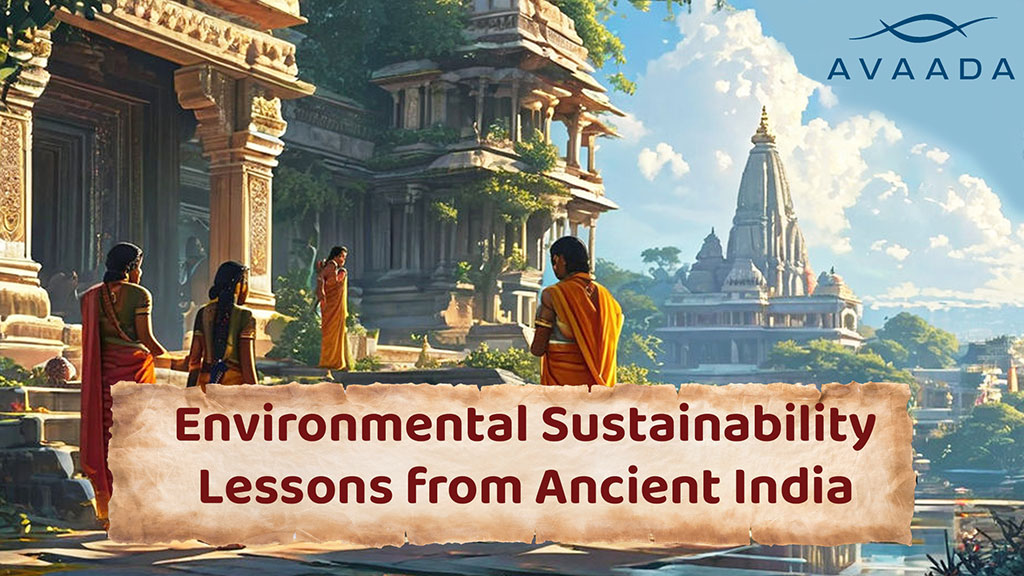India has an ancient tradition of protecting the environment. Ancient Indian philosophy relating to environment protection teaches that it is the Dharma of everyone in any society to protect nature. This is why people have always worshipped the objects of nature. Trees, water, land, and animals have an important mention in our ancient texts. We are aware that the ecology and environment, which includes the air, earth, water, plants, and animals, are essential to maintaining both human life and civilization. Only when there is constant cooperation amongst different stakeholders to make the most sustainable use of the world’s natural resources and assume responsibility for preventing environmental degradation and damage will human civilization be able to flourish.
In addition to cancer, which is getting worse every day, people are suffering from pollution, imbalance in environmental cycles, typhoid, cholera, jaundice, hepatitis and other water and air borne diseases. Environmental degradation due to deforestation, siltation, air, land, insanitation, water, and noise pollution all pose a grave threat not only to the quality of human life but also to its basic survival.
The Sanskrit shloka indicates the relationship of humans with the earth comparing it to a mother and child inferring that one should not harm either the environment or its flora and fauna. For instance, Kautilya wrote a treatise on economics and statecraft in the 4th century BC called the Artha Shastra. It contains comprehensive guidelines for managing forests, with a focus on their preservation for future generations. Similarly, the Chola, Solanki, and Asaf Jahi dynasties were among the ancient leaders who used creative and long-lasting methods to manage the resources at hand. Advanced irrigation and water management systems developed by the Indus Valley Civilization are examples of innovations.
The Vedic Insights: The Vedas, ancient Hindu texts, teach us to respect nature. For instance, the Atharvaveda asserts that pure air is a medicine, highlighting the importance of maintaining air quality. Similarly, the Rigveda also speaks of a protective layer around the Earth, akin to the modern concept of the ozone layer, warning against actions that could damage this natural shield. Now let’s delve deep into the sustainability practices that was a part of our culture since time immemorial.
Waste Management
In ancient India, waste was not seen as waste. It served as a source for compost, an organic farming manure. The recycling of waste products was the primary goal of the waste management techniques.


Earthen Utensils
Earthen utensils are a permanent part of Indian cooking and using it is more nutritious as they add minerals such as calcium and phosphorus to the food. The same idea has gained popularity among the Vegan community.


Health and Wellness practices
Ancient Indians civilisation had recognized the importance of a healthy lifestyle and believed that health and wellness were interconnected with nature. Practices like yoga, Ayurveda, and meditation were used to promote physical and mental well-being.


Plant-based Products
To reduce waste, our forefathers used to use neem sticks as toothbrushes and combs. Likewise, Reetha or Soap Nuts were used as shampoo.


Eco-Friendly Cooling Systems
One of the main sources of emissions of CFCs (chlorofluorocarbons) is refrigerators and the main cause for the depletion of the Ozone Layer. In ancient India, earthen pot was used for natural cooling technology.


The ecological sustainability of ancient India was approached in a profound and useful way. These practices, which were based on a profound respect for the natural world and an awareness of ecological interdependence, guaranteed the survival and well-being of human societies as well as the environment. By going over and incorporating these ancient teachings again, we can create more sustainable policies and ways of living that respect the fragile balance of our planet. The knowledge found in old Indian manuscripts serves as a helpful reminder that environmental stewardship is a timeless duty that is essential to the welfare of coming generations.
FAQs
1. What do the Vedas teach about environmental protection?
Vedas urge harmony with nature: Atharvaveda calls pure air medicine; Rigveda warns of ozone-like shield harm. Eco-balance is divine duty.
2. How did ancient Indians practice waste management sustainably?
Waste became compost & fuel (cow dung). Vedic circular economy minimized landfills; inspires modern zero-waste.
3. What role did Ahimsa play in ancient Indian sustainability?
Ahimsa (non-violence) to all life preserved biodiversity, sacred trees, & soil via plant diets & animal protection.
4. How were earthen utensils eco-friendly in ancient India?
Earthen pots add minerals to food, biodegrade, enable natural cooling; reduce plastic use, revived in vegan circles.
5. What ancient Indian health practices promoted environmental wellness?
Yoga, Ayurveda, meditation link health to nature. Neem hygiene, pranayama echo Vedic air purity.
6. How did ancient India use plant-based products for sustainability
Neem sticks as brushes, Reetha as shampoo—zero-waste, antimicrobial, cut non-biodegradable use.
7. What eco-friendly cooling systems existed in ancient India?
Earthen pots & wind towers used evaporative cooling, no CFCs; preserved ozone, low-energy vs modern AC.
8. How did the Arthashastra guide forest and resource management?
Kautilya’s text set rules for sustainable forests, crop rotation, soil care for future generations.
9. What water conservation techniques can we learn from ancient India?
Stepwells, tanks, johads harvested rain, recharged groundwater; fought drought sustainably.
10. How can ancient Indian wisdom inform modern climate policies?
Revive Dharma, circular economy, organic farming, Vastu for green living; honor Earth as mother.









